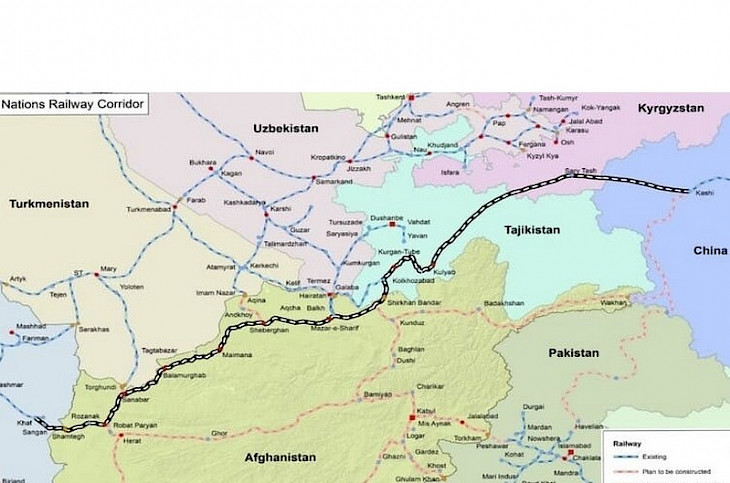Tajikistan has proposed practical measures for the construction of road and railway routes along the "China-Tajikistan-Afghanistan" corridor, reports Eurasia Today.
The proposal is linked to the improving overall security situation in the region, which is creating new opportunities for expanding trade and connections between countries. Afghanistan, with its advantageous geopolitical position in Asia and its desire to establish strong economic and political relationships with international and regional partners, is working with other countries in the region to build roads and transit corridors.
At a recent meeting in Dushanbe with Chinese President Xi Jinping, Tajik President Emomali Rahmon proposed several practical steps in this direction.
"The construction and reconstruction of the road 'Kalaikhum-Vanch-Rushon District Border' will contribute to improving the 'China-Tajikistan-Uzbekistan-Turkmenistan-Iran-Turkey' transit corridor.
We proposed the possibility of constructing and upgrading the 'Dushanbe-Kulma' highway section from the Rushon district to the 'Kulma-Karasu' border crossing.
Measures are also being proposed for the construction of road and railway routes along the 'China-Tajikistan-Afghanistan' corridor to expand trade connections," Rahmon said.
Meanwhile, the Trans-Afghan railway project, which opens up wide economic opportunities for regional trade and cooperation, is under construction. Stretching 600 km, the road primarily passes through Afghanistan and Pakistan.
Preliminary estimates suggest that the project's cost is $5 billion, with a transit capacity of up to 20 million tons of cargo.
This project is essential for developing transport and trade connections in Central and South Asia, linking Uzbekistan, Afghanistan, and Pakistan, and promoting the creation of a Eurasian transport corridor.
Upon completion, the Central Asian countries will gain access to a port in the Indian Ocean, reducing delivery times from 35 to 5 days and cutting delivery costs by 40%.
First proposed by Uzbekistan in December 2018, the Trans-Afghan railway envisions extending Afghanistan's railway network from Mazar-i-Sharif to Kabul and then to Paktia province.
In Afghan Badakhshan, work is underway to construct the Wakhan Corridor, which will connect the Wakhan district to the Chinese border. This route will provide Afghanistan and China with direct access to each other's markets, reducing distance and lowering import and export costs.
With the opening of the Wakhan Corridor, trade and bilateral relations between Afghanistan and China will be strengthened, benefiting both countries.
Afghanistan and China have already begun negotiations to start traffic through this corridor, which will directly link the two countries and could reduce Afghanistan's dependence on certain regional countries for transit trade.
The Wakhan Corridor will also benefit countries like Tajikistan, Uzbekistan, Iran, and Pakistan, creating significant opportunities for trade growth and economic activity in the region. This route could further develop trade in various goods between regional countries.
In December 2020, Iran and Afghanistan opened the first cross-border railway connection between the two countries. Work on the 225-kilometer railway line connecting Khaf in eastern Iran with Herat in western Afghanistan began in 2007.
CentralasianLIGHT.org
July 12, 2024

